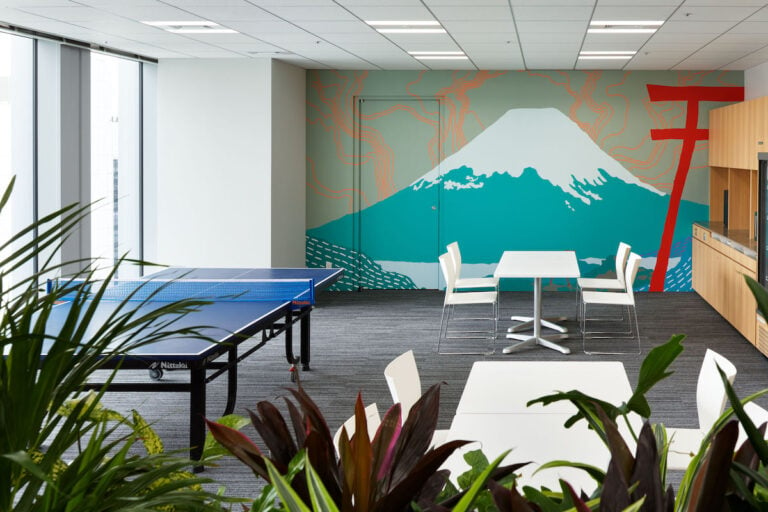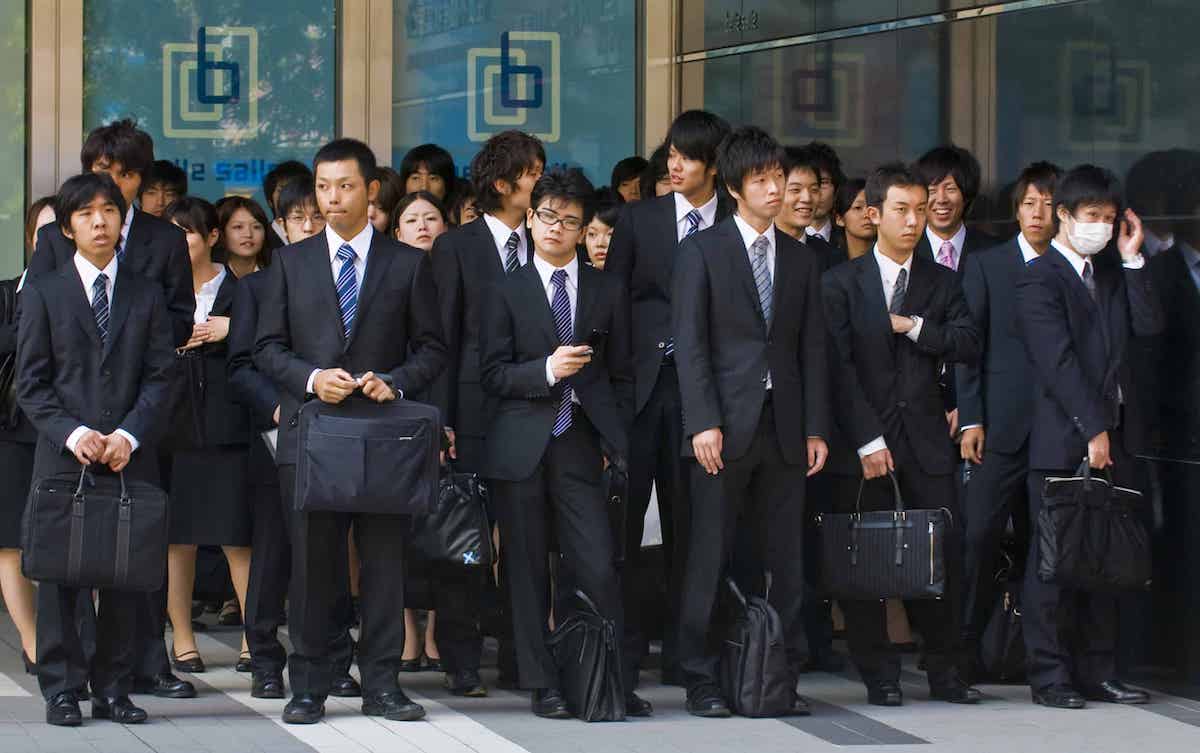
The work culture in Japan may come as a shock to some people. I certainly had a lot to learn before I felt truly acclimated to working in Japan. Below are a few of the main differences that you can expect if you are coming from a work background outside of Japan:
The Dress Code
Before moving to Japan, I worked in a government archive department in my state’s capital, and one of my coworkers frequently wore jeans and a button up and called it a day. In Japan, that won’t fly, and you can expect someone to make a comment on your clothes.
Within the first few weeks of working in a Japanese work environment, I realized how your appearance can play a direct role in how you are viewed by your peers professionally. So, the days of wearing slacks and oversized sweaters were behind me–at least at work. If I wanted to be taken seriously, I needed to abide by a pretty strict dress code.
I can sum up the Japanese dress code in one word: suits. If you live in a Japanese city, you’ll probably be hit by an ocean of black and gray around rush hour times since most Japanese workers stick to the same color scheme for their work suits. I have even heard of some workers wearing suits to work and changing into their actual work uniform afterwards to keep up the image of blending in during their commute.
In general, Japanese workers want to blend in, and standing out isn’t really a good thing as it brings more attention to yourself.

The Work Pyramid Hierarchy and Indirectness
Something else that came as a shock for me working in Japan was the strict pyramid hierarchy in the workplace. This may vary depending on whether you live in the city or countryside, but a hierarchy does usually exist in some form, regardless where you are working.
My first job in Japan was at a public highschool, and when I first entered the classroom, I was shocked by the layout of the teachers’ office. Instead of the teachers each having their own classrooms that they were free to decorate as they wished (as had been my experience in American schools), all of the school’s staff was basically located in one large office with each of their desks lined up right next to each other. At the front of the office sat the vice principal.
Furthermore, another work culture shock for me in the Japanese work environment was the indirectness that everyone seemed to exhibit in the office. I was used to the directness in American offices, especially when a problem arose. In a typical American office, if there is a problem we tend to handle things directly, but in Japan that can be viewed as being rude.
If you have a complaint or want to ask your higher up a question in America, it wouldn’t be unheard of to ask them directly, but in Japan, your comment will have to pass through several ears before it reaches your boss, and even when you get a response you can bet that it won’t be coming directly from your boss.
Quiet
After you begin working in Japan, you may be shocked at how quiet the office can be. Of course, this may vary, but something that I have noticed in most of my working environments here is that silence is golden. In America, I often found myself engaging in conversation with my coworkers. Sometimes those work relationships extended into long term friendships, and many of them I still communicate with today. However, after beginning work in Japan, I found that Japanese society draws pretty strict lines between work life and personal life, so making friends beyond anything surface level has been pretty rare for me at work.
You may notice that your Japanese coworkers tend to not share a lot about their personal life, whereas in your home country the case may be different. I often found that when I would get a new American coworker, they were pretty quick to open up about themselves, whereas my Japanese coworkers weren’t up for giving out such information freely.
Some may find this level of privacy welcoming, whereas others may find it to be cold and off-putting.
For me, coming from south Alabama, I felt the silence to be deafening at first, and worried about what my coworkers thought of my insistently.
It’s good to note, however, that it’s definitely a NOT YOU problem, and that it’s just how society functions here.
Overtime
Lastly, another thing to note about work life in Japan is the overtime.
“It’s quittin’ time,” is a phrase often used in the southern United States when your work shift finishes on the dot. Needless to say, we don’t have the same push for working overtime as there is in Japan.
Overtime in Japan is often a right of passage to be accepted in a company. While living and working in Tokyo, I’ve heard that even if you aren’t good at your job, as long as your work overtime, you will be accepted at your company.
Many Japanese offices work as a group, together, so when one person is absent it is noticed by all of your teammates. If you leave work on time your coworkers may feel that you are letting down the team, so there is a lot of social pressure to stay at work, even when your shift has ended.
A lot of Japanese companies get around paying for overtime by including it in advance to your monthly salaries, but employees often view this overtime work as just being a part of work life.
Work life in Japan may definitely take some time to get used to. It definitely has its peculiarities and social nuances that you may find as being quite a bit different than work culture in your home country. From the dress uniform, to a plethora of social pressures, it can be quite shocking if you aren’t prepared for it.
Even before moving to Japan, I had been informed of the differences in work culture between Japan and America, but it wasn’t until actually moving and working here that I was able to learn how work life really functions here.
In my experience, however, my Japanese coworkers have been extremely kind and forgiving, even when I make a social blunder. Still, it is best to be prepared for these so you can better know what to expect.













